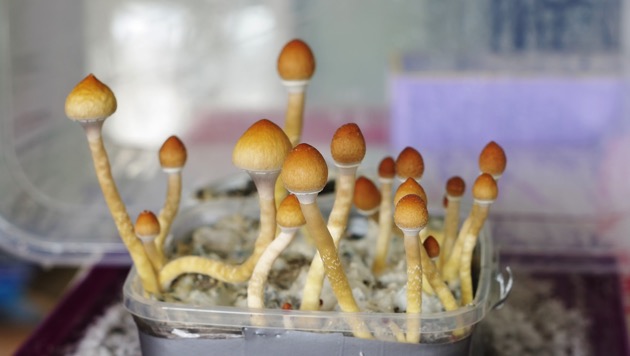By ADIA ROBINSON, ABC News(WASHINGTON) — This Election Day, voters in Washington, D.C., will consider a measure that, if approved, would effectively decriminalize the use of psychedelic plants, like ayahuasca and psilocybin mushrooms, more commonly known as magic mushrooms.Initiative 81, or the Entheogenic Plant and Fungus Policy Act of 2020, would make the investigation and arrest for adult cultivation and use of psychedelic plants one of the lowest law enforcement priorities for the district’s police department. It also contains a non-binding clause asking the D.C. attorney general to not prosecute anyone charged with an offense related to the substances.Melissa Lavasani, a mom and D.C. government employee who proposed the initiative, called the measure a “small step” toward ending the war on drugs.”We believe that there is a growing body of research around these substances, and there’s a lot of interest in the research community,” she said. “And our laws should adapt to what the research has indicated.”The district would follow Denver, Oakland, California and Santa Clara, California, in decriminalizing some or all psychedelic plants. Voters in Oregon are also considering a similar measure, which would set up treatment facilities using psilocybin mushrooms, but would not decriminalize them.Lavasani saw the success of the decriminalization campaign in Denver and began advocating for a similar measure in the district. She knew the therapeutic value of psychedelics personally after using psilocybin mushrooms and ayahuasca to treat severe postpartum depression.”I had zero experience with depression or any real mental health issues,” Lavasani said. “I’ve had a pretty regular, good life. And I had never been in that situation before and I was struggling terribly.”At the time, she sought a more natural way of treating depression (through cognitive behavioral therapy and other methods), but nothing was working for her.”At that point in time, I was contemplating suicide because I was so miserable, and my family was really suffering with me,” she said. “I didn’t really see a way out.”Then, Lavasani came across an interview with mycologist Paul Stamets on the Joe Rogan podcast, in which Stamets talked about the therapeutic benefits of psilocybin mushrooms. After doing her own research, Lavasani decided to try them.”I would take it in the morning and within a matter of days I started to get my humanity back,” she said. “I started to feel like I used to. I was engaging with my children and I was engaging with my husband again, and the whole world lit up for me.”But despite how much her mental health improved, the fear of being arrested for using the Schedule I drug persisted.”It’s a frightening thought to work your entire life for your career and to build your family and to know that it can all be wiped out with one person finding this information out and reporting it to the police,” Lavasani said. “I really could have lost everything in my life, just as I was getting my life back.”Matthew Johnson, the associate director of Johns Hopkins University’s Center for Psychedelic and Consciousness Research, told ABC News that while the FDA has not approved psychedelics for therapeutic use, there is “very strong evidence” they have anti-addiction effects and can treat depression and anxiety in some patients.”The remarkable thing, which really is the paradigm shifting thing in psychiatry, is that you can have one session where we’ve seen behavioral effects over a year afterwards,” he said.Johnson said that the biggest risks associated with psychedelics are susceptibility to psychotic disorders and people panicking in response to “bad trips,” which he refers to as challenging experiences.These are generally short term risks, Johnson said, and they can be mitigated in a clinical setting. Because it only takes a few sessions for patients to see effects, clinicians can monitor a person’s reaction more closely than they could with daily psychiatric medication.The most vocal opponent of the initiative is Republican Maryland Rep. Andy Harris. At a House Appropriations Committee mark-up in July, he introduced, but later withdrew, an amendment that would restrict Initiative 81 to medical use only.”This is a bald-faced attempt to just make these very serious, very potent, very dangerous — both short-term and long-term — hallucinogenic drugs broadly available,” he told the New York Post in July.”Public health has to be maintained,” he added. “We know, of course, once you make it a very low enforcement level and encourage prosecutors not to prosecute it, what would prevent people from using hallucinogens, getting behind the wheel of a car and killing people?”Lavasani responded to Harris’ criticism by noting that nothing in the district’s laws about driving under the influence would change.”This isn’t really like a party drug that we’re talking about. I think in his mind he’s thinking, ‘Well, people are going to be out eating mushrooms and partying,’ but what we’re talking about is the therapeutic use of them,” she said. “We’re talking about people with really serious issues that they haven’t been able to find solutions for that this can help.”Copyright © 2020, ABC Audio. All rights reserved.












